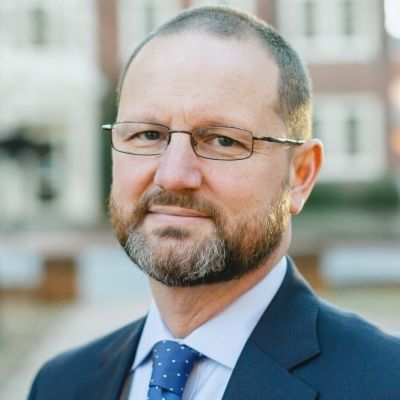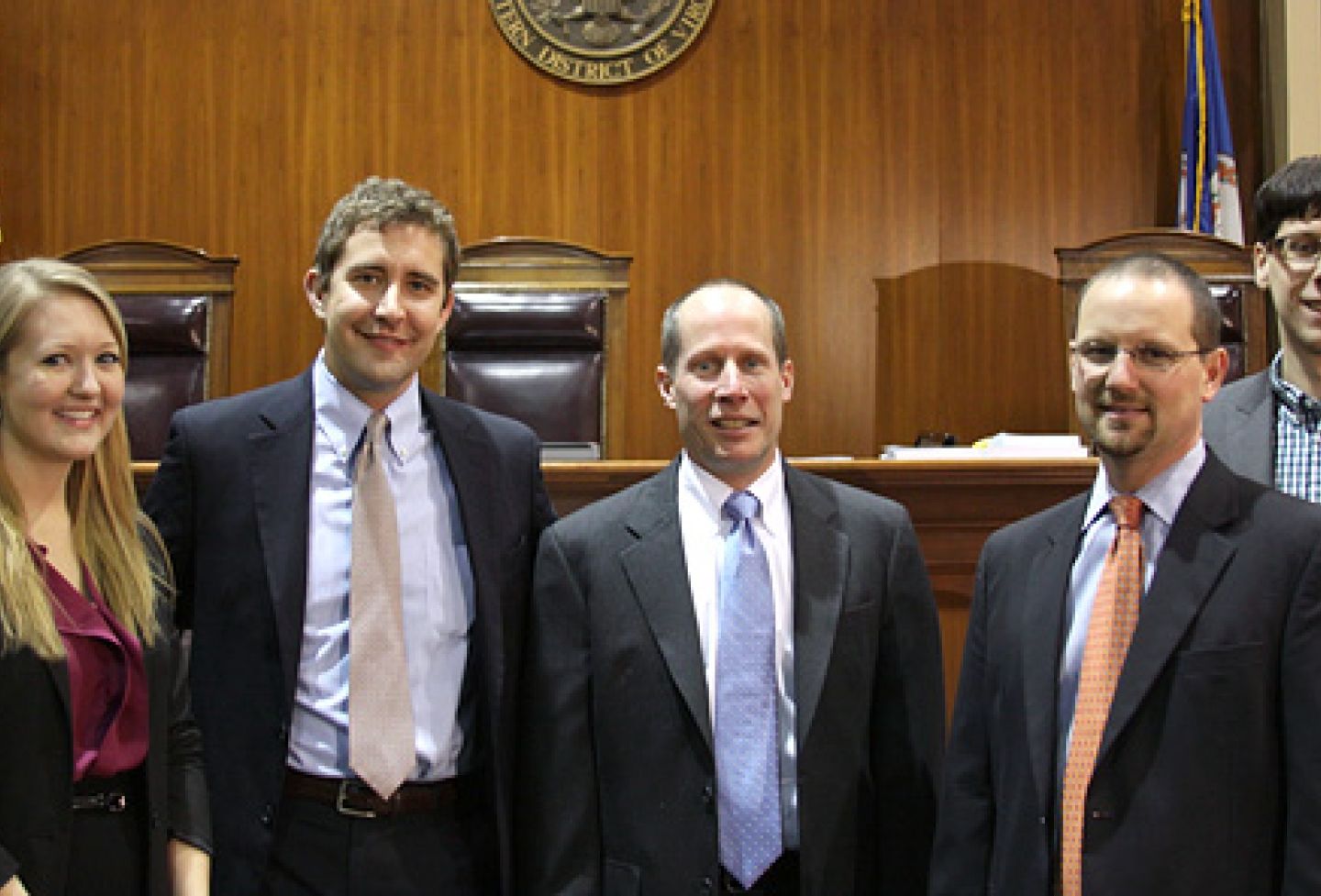This yearlong clinical course provides students with hands-on courtroom experience and pushes students to think about issues surrounding the American criminal justice system.
Through a combination of classroom lectures, discussions, guest speakers and field placement in one of several local prosecutors’ offices, students explore a range of practical, ethical and intellectual issues involved in the discharge of a prosecutor’s duties and responsibilities. Although the class is directed at students who wish to pursue a career in prosecution (at the state or federal level), any student who is thinking of pursuing a career in the criminal justice field in any capacity, in public service, or who just wants to gain hands-on courtroom experience is welcome and encouraged to apply.
The highlight of the clinic is the students’ experiences interning in the Commonwealth’s Attorneys’ Offices for Charlottesville or Albemarle County, or one of the other surrounding Virginia jurisdictions within 30-60 minutes of the law school. Students who prefer experience in a federal office can seek placement in the U.S. Attorney’s Office for the Eastern District of Virginia in Richmond. For the full academic year, students are assigned to one of these participating prosecutors’ offices, where they work on real cases and appear in court weekly, sharpening their oral advocacy, gaining valuable courtroom and trial experience, and helping protect and serve their communities. Most of the students’ responsibilities and duties are in court, either in pretrial hearings or at trial, but students may also be asked to write and file motions and briefs, as well as conduct legal research. Students are expected to work out a suitable schedule with their assigned office. Students must be willing to work in whatever office is assigned (although students can request certain offices) and are responsible for their own transportation and commuting costs.
In the fall semester, field placement is supplemented by classroom lectures, discussions, and speakers, so that students are prepared to appear in court and handle a range of criminal matters. Specifically, lectures focus on Virginia crimes, defenses, procedure, and criminal case issues, such as warrants, bond hearings, competency issues, motion practice, trial preparation, and sentencing. Experienced guest speakers help complement and illustrate the issues raised in the lectures. In the spring semester, classroom time is devoted to discussion of issues students are experiencing in the courtroom and which are reflective of systemic issues, such as racial inequities, gender issues, criminal justice and sentencing reform, the role of forensic science, mental health issues, diversion courts, or other issues students wish addressed in more depth.
Throughout the year, students also are required to observe certain court proceedings and participate in a ride-along with a police officer. There is a major paper (10-12 pages) due at the end of the spring semester. The paper is not a research paper and will not satisfy the upper-level writing requirement.
Students must rank the clinic and submit an application by the clinic lottery deadline, and will be informed of clinic lottery/selection results and enrolled in the clinic prior to the regular course lottery. Because spaces in the program are limited, and because of the need to perform background checks in some instances that require deployment of significant resources, the application form includes a formal representation from the student that they will commit to the Clinic for the full academic year.
ATTENDANCE REQUIREMENT: Enrolled students who do not attend the first class will be dropped.
PREREQUISITES: Third-year status, Civil Procedure, Criminal Law, Evidence, Professional Responsibility, Criminal Adjudication or Criminal Investigation or Criminal Procedure Survey, and Trial Advocacy. Either Trial Ad or one of the criminal procedure courses may be taken first semester third-year as a “co-requisite,” but not both. Students must be eligible for and obtain a Third-Year Practice Certification from the Virginia Bar prior the beginning of the fall semester, so that they can appear in the courtroom.
SKILLS TAUGHT: Courtroom oral advocacy, presentation of evidence, witness interviews, fact development, legal research, preparation of pleadings and plea negotiation
To be considered for this clinic, students must both rank the clinic in the clinic lottery and submit application materials within the timeline set by the Student Records Office. Students selected for the clinic through the clinic application/lottery process will be automatically enrolled prior to the regular course lottery.
The positions that the clinic takes on behalf of its clients are independent of the views of the University of Virginia or the School of Law.
Faculty
Joseph D. Platania
Lecturer
Heather L. Carlton
Lecturer
Skills Taught
Client and witness interviews, factual development, legal research, preparation of pleadings and negotiation
Grading
S/U (fall); H/P/F (spring)
Course Credits
8 (4 fall/4 spring)
Application
Instructors
In the News
4.17.20 Nellie Black Goes From Classroom to Courtroom
4.12.18 Justice from Opposing Sides
3.19.13 Even Before Graduation, UVA Law Students Prosecute Criminal Cases Through Clinic
6.20.12 UVA Law Student Has Rare Opportunity to Prosecute Felony Jury Trial — And Wins
Fall 2011 Clinic a Stepping Stone for Many Young Prosecutors
4.26.04 Mr. Prosecutor Rhode: In the Prosecution Clinic, Cases Aren't from the Textbook

